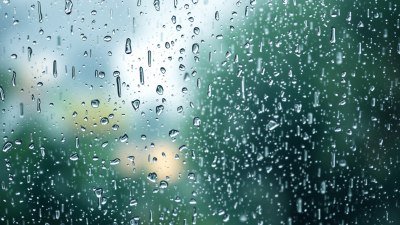The ‘Oh No, I Left the Windows Open’ Weather Panic
How to Deal with the Sudden Realization That You’ve Left the Windows Open During a Storm

There’s a certain kind of panic that hits you the moment you realize you’ve left your windows open when the weather suddenly turns against you. It’s the stuff of travel and homeownership nightmares. Whether it’s a thunderstorm rolling in, heavy rain pouring down, or an unexpected gust of wind picking up, the second you remember those open windows, your heart sinks. You can almost feel the wet carpet and soggy cushions, and the thought of a flooded room takes over your mind. It’s a terrifyingly relatable feeling that everyone has experienced at least once. But how do you handle it without spiraling into full-blown panic mode? Let’s dive into what happens when your windows are open in bad weather and how to manage the aftermath.
That Moment of Realization – The Instant Panic
It usually starts with an innocent glance out the window or a casual glance at your phone’s weather app—until you see dark clouds looming or hear the distant rumble of thunder. And then it hits you: you left the windows open. Suddenly, everything seems to move in slow motion as your mind races through all the possible disastrous outcomes. Will the rain flood your floors? Will the wind break the window or scatter debris all over your house? Your heart starts to race, and the urgency to fix the situation kicks in. But how do you calm down in a moment of high stress?
The Immediate Response – What to Do First
Before you succumb to the feeling of doom, take a deep breath and remind yourself: panicking won’t fix the problem. Here’s how to handle the situation step-by-step:
1. **Assess the situation calmly.** Is the storm approaching or already here? Are the winds strong enough to cause real damage, or is it just a light breeze? The severity of the weather will help you gauge how much of a rush you’re in.
2. **Head to the windows quickly.** If the rain has already started, you’ll want to get there as fast as possible to prevent too much water from getting inside. Close the windows gently—there’s no need to make matters worse by slamming them shut and breaking something.
3. **Protect the interior.** Once the windows are closed, check for any water that’s already spilled into your living space. If you’re lucky, there’s little to no water damage. If you’ve got cushions, rugs, or furniture that could be damaged, move them out of the way or put towels down to absorb any excess moisture.
How to Handle the Aftermath – Checking for Damage
Once the storm has passed, it's time to check for any damage. The severity of the situation will depend on how long the windows were left open and how extreme the weather was. Here’s what to look for:
1. **Water on the floors and furniture.** The first sign of damage will be wet spots. If you've got wooden floors, act fast to prevent warping. Use towels to soak up as much water as possible. For upholstery, a wet-dry vacuum can help clear up any excess moisture.
2. **Wet carpets and rugs.** If your carpets have soaked up water, you’ll want to lift them to allow the area underneath to dry out. If the water’s too deep, consider calling in professionals to dry and clean the carpet to prevent mold.
3. **Check the window area.** If the rain was heavy, check the walls and windowsill for signs of water leakage. If water has seeped inside, you may need to fix any potential damage to the wall, such as peeling paint or swelling wood. Ensure the window seals are intact to avoid future issues.
How to Prevent This Panic in the Future
Once the immediate panic has passed, it’s time to think about how you can avoid this stressful situation again. While you can’t control the weather, you can prepare for unexpected storms and prevent the need to race back home to close your windows in the middle of a downpour.
1. **Set a reminder.** One simple way to avoid the panic is by setting a reminder on your phone or using a smart home device to check your windows before you leave or go to bed. It’s a small step that can save you a lot of stress later on.
2. **Use weather alerts.** Sign up for weather notifications or enable alerts on your weather apps. That way, if the forecast calls for bad weather, you can check and close your windows before it’s too late.
3. **Invest in weatherproof window coverings.** If you live in an area prone to sudden storms, consider investing in outdoor shutters or weatherproof curtains. These can help block out the rain and wind even if you forget to close the windows in time.
4. **Create a checklist.** Especially if you have multiple windows or live in an area with unpredictable weather, a checklist can help you quickly run through tasks before leaving the house or going to bed. Close windows, check for leaks, and make sure nothing is left vulnerable to the elements.
How to Laugh About It Later – Finding the Humor in the Panic
Now that the weather panic is over and you've managed to save your home from disaster (or at least prevent significant damage), it’s time to lighten up. One of the best things about weather mishaps is that they give you stories to laugh about later. After all, everyone has left their windows open during a storm at some point. It’s a rite of passage, a moment where we all learn how vulnerable we are to nature’s whims.
Next time you face a similar situation, you’ll be better prepared—and you’ll probably laugh about it in hindsight. After all, sometimes the best remedy to a weather-related crisis is a sense of humor. Plus, you’ll be able to tell the story of the time the rainstorm caught you by surprise... and how you survived it like a pro!











